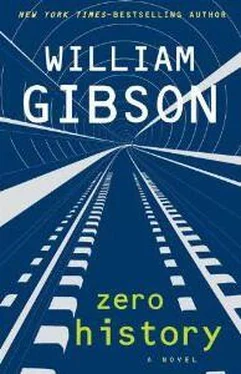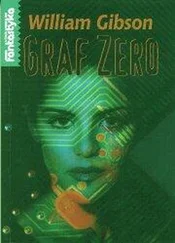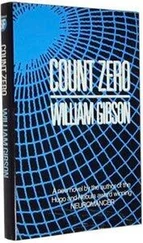William Gibson - Zero history
Здесь есть возможность читать онлайн «William Gibson - Zero history» весь текст электронной книги совершенно бесплатно (целиком полную версию без сокращений). В некоторых случаях можно слушать аудио, скачать через торрент в формате fb2 и присутствует краткое содержание. Жанр: Фантастика и фэнтези, на чешском языке. Описание произведения, (предисловие) а так же отзывы посетителей доступны на портале библиотеки ЛибКат.
- Название:Zero history
- Автор:
- Жанр:
- Год:неизвестен
- ISBN:нет данных
- Рейтинг книги:4 / 5. Голосов: 1
-
Избранное:Добавить в избранное
- Отзывы:
-
Ваша оценка:
- 80
- 1
- 2
- 3
- 4
- 5
Zero history: краткое содержание, описание и аннотация
Предлагаем к чтению аннотацию, описание, краткое содержание или предисловие (зависит от того, что написал сам автор книги «Zero history»). Если вы не нашли необходимую информацию о книге — напишите в комментариях, мы постараемся отыскать её.
Zero history — читать онлайн бесплатно полную книгу (весь текст) целиком
Ниже представлен текст книги, разбитый по страницам. Система сохранения места последней прочитанной страницы, позволяет с удобством читать онлайн бесплатно книгу «Zero history», без необходимости каждый раз заново искать на чём Вы остановились. Поставьте закладку, и сможете в любой момент перейти на страницу, на которой закончили чтение.
Интервал:
Закладка:
The Neo, Milgrim gathered, was less a phone than a sort of tabula rasa, one which Sleight could field-update, without Milgrim’s knowledge or consent, installing or deleting applications as he saw fit. It was also prone to something Sleight called “kernel panic,” which caused it to freeze and need to be restarted, a condition Milgrim himself had been instantly inclined to identify with.
Lately, though, Milgrim didn’t panic quite as easily. When he did, he seemed to restart of his own accord. It was, his cognitive therapist at the clinic had explained, a by-product of doing other things, rather than something one could train oneself to do in and of itself. Milgrim preferred to regard that by-product obliquely, in brief sidelong glances, else it somehow stop being produced. The biggest thing he was doing, in terms of the by-product of reduced anxiety, the therapist had explained, was to no longer take benzos on as constant a basis as possible.
He no longer took them at all, apparently, having undergone a very gradual withdrawal at the clinic. He wasn’t sure when he’d actually stopped having any, as the unmarked capsules had made it impossible to know. And he’d taken lots of capsules, many of them containing food supplements of various kinds, the clinic having some obscure naturopathic basis which he’d put down to basic Swissness. Though in other ways the treatment had been quite aggressive, involving everything from repeated massive blood transfusions to the use of a substance they called a “paradoxical antagonist.” This latter produced exceptionally peculiar dreams, in which Milgrim was stalked by an actual Paradoxical Antagonist, a shadowy figure he somehow associated with the colors in 1950s American advertising illustrations. Perky.
He missed his cognitive therapist. He’d been delighted to be able to speak Russian with such a beautifully educated woman. Somehow he couldn’t imagine having transacted all of that in English.
He’d stayed eight months, in the clinic, longer than any of the other clients. All of whom, when opportunity had afforded, had quietly asked the name of his firm. Milgrim had replied variously, at first, though always naming some iconic brand from his youth: Coca-Cola, General Motors, Kodak. Their eyes had widened, hearing this. Toward the end of this stay, he’d switched to Enron. Their eyes had narrowed. This had partly been the result of his therapist’s having ordered him to use the internet to familiarize himself with the events of the previous decade. He had, as she’d quite rightly pointed out, missed all of that.
›››
He dreams this in the tall white room, its floor of limed oak. Tall windows. Beyond them, snow is falling. The world outside is utterly quiet, depthless. The light is without direction .
“Where did you learn your Russian, Mr. Milgrim?”
“Columbia. The university.”
Her white face. Black hair matte, center-parted, drawn back tight .
“You described your previous situation as one of literal captivity. This was after Columbia?”
“Yes.”
“How do you see your current situation as differing from that?”
“Do I see it as captivity?”
“Yes.”
“Not in the same way.”
“Do you understand why they would be willing to pay the very considerable fees required to keep you here?”
“No. Do you?”
“Not at all. Do you understand the nature of doctor-patient confidentiality, in my profession?”
“You aren’t supposed to tell anyone what I tell you?”
“Exactly. Do you imagine I would?”
“I don’t know.”
“I would not. When I agreed to come here, to work with you, I made that absolutely clear. I am here for you, Mr. Milgrim. I am not here for them.”
“That’s good.”
“But because I am here for you, Mr. Milgrim, I am also concerned for you. It is as though you are being born. Do you understand?”
“No.”
“You were incomplete when they brought you here. You are somewhat less incomplete now, but your recovery is necessarily a complexly organic process. If you are very fortunate, it will continue for the rest of your life. ‘Recovery’ is perhaps a deceptive word for this. You are recovering some aspects of yourself, certainly, but the more important things are things you’ve never previously possessed. Primary aspects of development. You have been stunted, in certain ways. Now you have been given an opportunity to grow.”
“But that’s good, isn’t it?”
“Good, yes. Comfortable? Not always.”
›››
At Heathrow there was a tall black man, head immaculately shaven, holding a clipboard against his chest. On it, in medium-nib red Sharpie, someone had written “mILgRIm.”
“Milgrim,” Milgrim said.
“Urine test,” the man said. “This way.”
Refusing to submit to random testing would have been a deal-breaker. They’d been very clear about that, from the start. He would have minded it less if they’d managed to collect the samples at less awkward times, but he supposed that was the point.
The man removed Milgrim’s red name from his clipboard as he led him into an obviously preselected public restroom, crumpling it and thrusting it into his black overcoat.
“This way,” walking briskly down a row of those seriously private British toilet-caves. Not cubicles, or stalls, but actual narrow little closets, with real doors. This was usually the first cultural difference Milgrim noticed here. Englishmen must experience American public toilets as remarkably semicommunal, he guessed. The man gestured him into a vacant toilet-room, glanced back the way they’d come, then quickly stepped in, closing the door behind him, locked it, and handed Milgrim a plastic sandwich bag containing a blue-topped sample bottle. Milgrim propped the red cardboard tube, carefully, in a corner.
They had to watch, Milgrim knew. Otherwise, you might switch containers, palm off someone else’s clean urine. Or even use, he’d read in New York tabloids, a special prosthetic penis.
Milgrim removed the bottle from the bag, tore off the paper seal, removed the blue lid, and filled it, the phrase “without further ceremony” coming to mind. He capped it, placed it in the bag, and passed it over, in such a way that the man wouldn’t have to experience the warmth of his fresh urine. He’d gotten quite good at this. The man dropped it into a small brown paper bag, which he folded and stuffed into his coat pocket. Milgrim turned and finished urinating, as the man unlocked the door and stepped out.
When Milgrim emerged, the man was washing his hands, fluorescent lights reflecting off the impressive dome of his skull.
“How’s the weather?” Milgrim asked, soaping his own hands from a touch-free dispenser, the cardboard tube resting on the water-flecked faux-granite counter.
“Raining,” said the man, drying his hands.
When Milgrim had washed and dried his own hands, he used the damp paper towels to wipe the bottom plastic cap of his tube.
“Where are we going?”
“Soho,” the man said.
Milgrim followed him out, his overnight bag slung over one shoulder, the tube tucked under the opposite arm.
Then he remembered the Neo.
When he turned it on, it began to ring.
5. THIN ON THE GROUND
And when she’d watched him, from her chair, the collar of his coat popped like a vampire’s cape, finally descend the stairs to Cabinet’s foyer, dropping further out of sight with each step, she put her head back against slippery brocade and gazed at the spiraled lances of the narwhale tusks, in their ornate rack.
Читать дальшеИнтервал:
Закладка:
Похожие книги на «Zero history»
Представляем Вашему вниманию похожие книги на «Zero history» списком для выбора. Мы отобрали схожую по названию и смыслу литературу в надежде предоставить читателям больше вариантов отыскать новые, интересные, ещё непрочитанные произведения.
Обсуждение, отзывы о книге «Zero history» и просто собственные мнения читателей. Оставьте ваши комментарии, напишите, что Вы думаете о произведении, его смысле или главных героях. Укажите что конкретно понравилось, а что нет, и почему Вы так считаете.











